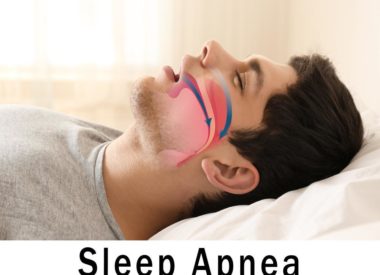Cancer & sleep apnea: The blood oxygen compromise
And in many ways, that’s not an unrealistic conclusion, given what we know about sleep breathing disorders and how they systemically influence all the different biological processes we undergo as human beings.
But is it true that untreated sleep apnea can compromise the body so much that it creates the proper conditions for supporting the growth and spread of tumors?
Sleep is a whole-body process with a unique relationship to each and every system in the body. Poor sleep ultimately leads to system disruption, and with enough system disruption, all kinds of chronic disease can settle in and flourish.
Cancer seems to have a direct relationship to untreated sleep apnea, with some researchers suggesting that one of the main problems with sleep apnea nocturnal intermittent hypoxia is mostly to blame for the greater resistance by cancer cells to therapies (i.e. radiation).
What the research says
Several recent studies have come to this very conclusion. Here’s a timeline to ponder:
- 1998 (and ongoing)
The Wisconsin Cohort StudyAlmost two decades of research confirm links between sleep apnea and cancer-related mortalities, with the odds of dying from cancer twice as likely for those with sleep breathing disorders. - 2008
Spain study This study showed that those with severe OSA were 65 percent more likely to develop cancer, with men under age 65 a significant target. - 2014
Chicago “mouse” studies Mice with tumors in these research labs were placed in low-oxygen conditions; their cancer progressed at an accelerated rate.Taiwan research Researchers found significantly higher risks for prostate cancer in patients who already suffered from sleep apnea. Other forms of cancer they found occurred more frequently in patients with sleep apnea include nasal, brain, breast, colon, and nasal cancer.
- 2015
Istanbul Reported at the 7th World Congress of the World Sleep Federation: People with untreated severe sleep apnea are five times more likely to develop and die from cancer.
How can sleep apnea influence cancer?
Sleep apnea leads to neurochemical imbalances. When poor sleep is the result of any untreated sleep disorder, the neurochemical balance that a whole-body process like sleep requires is disrupted.
Two of the key hormones that fall out of balance cortisol and melatonin are critical for maintaining a healthy immune system (cortisol) and for regulating the body’s circadian system (melatonin). In addition, this neurochemical balance can lead to body-wide (systemic) inflammation.
How does this relate to cancer?
-
Without a healthy immune system, the body can struggle to fight off the aggressive cellular behaviors that can lead to tumors.
-
With an imbalance in circadian rhythms as the result of decreased melatonin, the body produces higher amounts of other substances that are risk factors for cancer (for women, higher estrogen can lead to breast cancer, and for men, higher estrogen can lead to prostate, bowel, lung, and bladder cancer).
-
Systemic inflammation causes oxidative stress to the organs. Oxidation is a breakdown of tissues that is the consequence of long-term inflammation; oxidative stress refers tothe damage that results from unchecked systemic inflammation, which makes it easier for cancer an opportunistic disease to establish itself wherever the body is most vulnerable.
Sleep apnea causes sustained low blood oxygen. One of the biggest problems with sleep apnea is the way in which it deprives the body of necessary oxygen.
Frequent apneas (pauses in breathing that last at least 10 seconds, but often last much longer) lead to something called nocturnal intermittent hypoxia.
How does this relate to cancer?
-
Nocturnal intermitten thypoxia is strongly linked to cancer because it establishes the perfect conditions for cancer cells to grow and spread.
Sleep apnea can lead to increased pain sensitivity. If you suffer from frequent arousals at night which ultimately leads to fragmented sleep, or sleep deprivation you are more likely to experience more feelings of pain the following day. Poor sleep leads to a higher sensitivity to or perception of pain.
How does this relate to cancer?
-
If you are already suffering from cancer, you can expect an untreated case of sleep apnea (or other sleep disorder) to worsen your pain experience.
Sleep apnea is associated with depression. Poor sleep is a well-known risk factor for the development of mood disorders or the aggravation of preexisting depression.
How does this relate to cancer?
-
Depression, per se , doesn’t lead to cancer, but it can certainly be a part of the cancer treatment experience due to the therapies involved.
-
Not getting enough sleep (especially due to insomnia, which could actually be sleep apnea ) is a very common problem among people who have cancer, and the links between sleep deprivation and depression are well established.
Should you be concerned?
It seems Americans already are concerned about cancer, more than any other chronic illness or condition.
The Mayo Clinic National Health Checkup reported just this month that cancer is still a far higher medical concern for most Americans, topping even the Zika virus.
Meanwhile, in the same report, it was revealed that only half of all Americans get at least 7 to 8 hours of sleep a night (for whatever reason).
Considering that as many as28 million Americans suffer from sleep apnea (diagnosed or not), it seems like a good place to start when addressing concerns about the development of cancer.
Sleep apnea also has proven associations with many other chronic health problems, including cardiovascular disease, congestive heart failure, diabetes, high blood pressure, and stroke.
Researchers admit more research must be done to identify the links between sleep apnea and cancer. However, the first line treatment for most sleep breathing disorders is still continuous positive airway pressure (CPAP), which research from theWisconsin Cohort study shows is extremely helpful for cancer survival in those patients who are using it to treat sleep apnea.
Sources:
American Sleep Apnea Association
Centers for Disease Control
Mayo Clinic
National Institutes of Health
National Sleep Foundation
The New York Times
Wisconsin Cohort Study
World Health Organization



